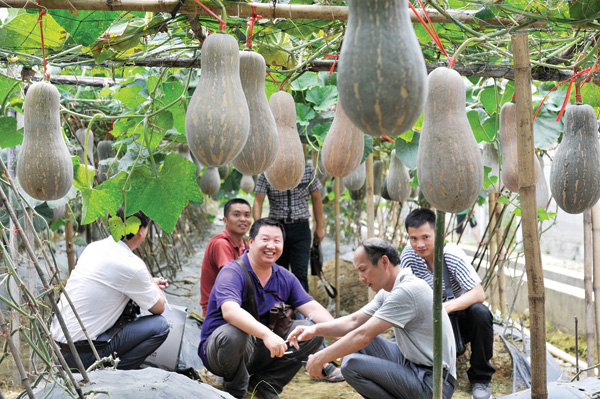Sowing the seeds of sustained growth
By Hu Yongqi ( China Daily )
Updated: 2013-09-02
|
 |
|
China has fostered nearly 10,000 new varieties of agricultural products in the past 30 years thanks to the nation's seed bank project. China Daily |
China plans more exchanges with ASEAN as agricultural cooperation takes root
Agricultural cooperation between China and the Association of Southeast Asian Nations is expected to get more impetus from the increased seed and technology exchanges between the two sides in the next few years, experts said.
Long Jiang, director of the Yunnan Provincial Science and Technology Department, said that the agriculture technology transfer agreement signed between the two sides in 2002 would be the framework for future agricultural cooperation and for development and exchange of new technologies.
China has fostered nearly 10,000 new varieties of agricultural products in the past 30 years, he said adding that the nation's 3 billion-yuan ($490 million) seed bank project, started in 1995, has helped increase annual food production by 20 million tons.
Long said that the keenness of both sides to enhance agricultural cooperation was evident at a recent meeting of more than 200 agricultural professionals from various Southeast Asian nations in Kunming, capital of Yunnan province. In their meetings with their Chinese counterparts, these professionals agreed to step up efforts to develop and exchange new agricultural technologies.
In Yunnan, more than 300 agricultural researchers and enterprises from all over China showcased their technologies and products, especially seeds of new breeds at the China-ASEAN Technology Transfer Forum on New Technologies and Varieties of Modern Agriculture in Yunnan. In addition, 16 companies from Yunnan signed contracts with partners from ASEAN nations for technology demonstration parks in super soft rice, corn and castor oil.
Long said that there have been increased efforts to cultivate agricultural professionals, boost technology exchanges and promotions, and foster agricultural trade between the two sides.

